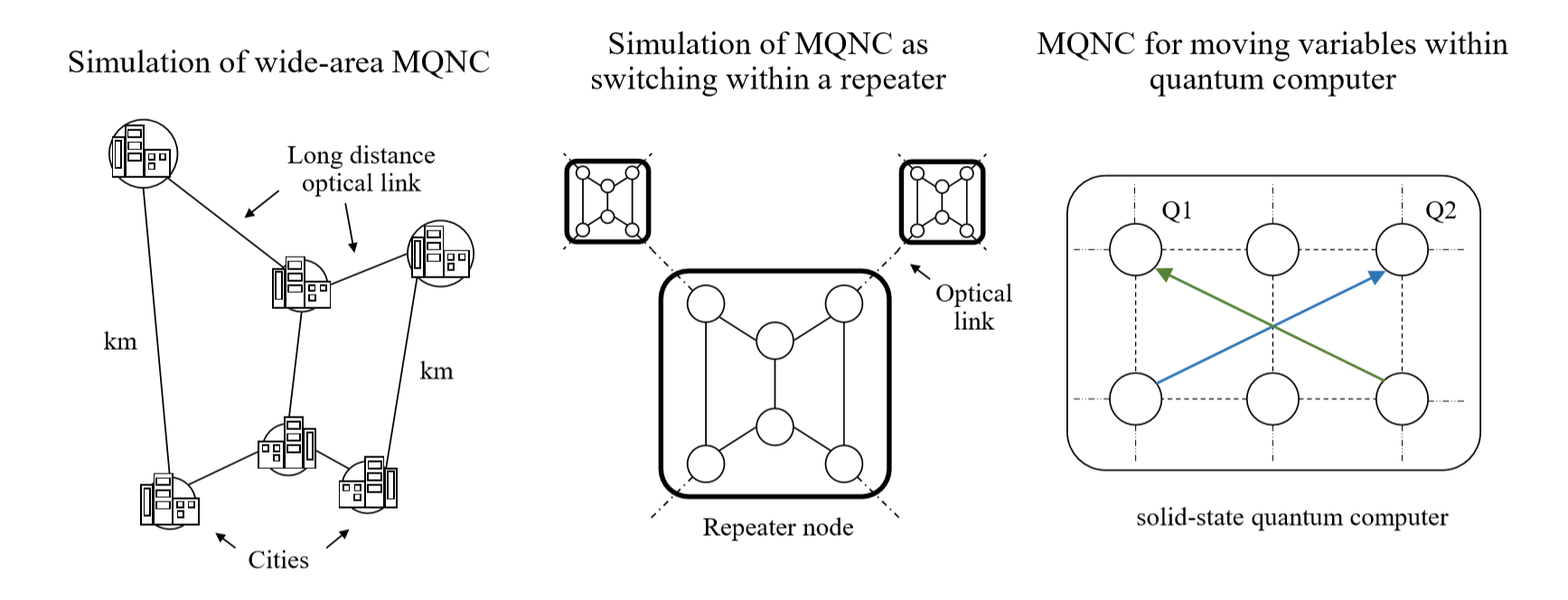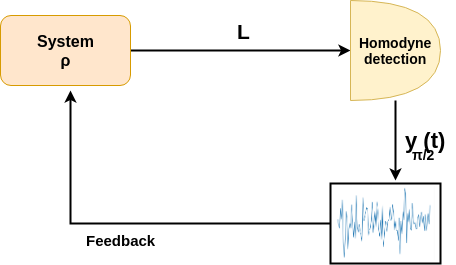Modeling of Measuremnent-based Quantum Network Coding on IBM Q Experience devices
Abstract
Quantum network coding has been proposed to improve resource utilization to support distributed computation but has not yet been put in to practice. We investigate a particular implementation of quantum network coding using measurement-based quantum computation on IBM Q processors. We compare the performance of quantum network coding with entanglement swapping and entanglement distribution via linear cluster states. These protocols outperform quantum network coding in terms of the final Bell pair fidelities but are unsuitable for optimal resource utilization in complex networks with contention present. We demonstrate the suitability of noisy intermediate-scale quantum (NISQ) devices such as IBM Q for the study of quantum networks. We also identify the factors that limit the performance of quantum network coding on these processors and provide estimates or error rates required to boost the final Bell pair fidelities to a point where they can be used for generation of genuinely random cryptographic keys among other useful tasks. Surprisingly, the required error rates are only around a factor of 2 smaller than the current status and we expect they will be achieved in the near future.

Read more
Effects of time delay in no-knowledge quantum feedback control
Abstract
The no-knowledge quantum feedback, introduced in Phys. Rev. Lett., 113, 020407 (2014), is a measurement-based feedback protocol for decoherence suppression in a quantum system coupled to noisy environment. By continuously measuring the environmental noise, without directly gathering any information about the system, the decoherence effect can be suppressed by feeding back quantum controls proportional to the measured signal. In the original work, the feedback control was assumed instantaneous, leading to perfect cancellation of noise backaction on the quantum system. However, the instantaneous feedback is difficult to achieve in practice, and close-loop feedback protocols are always associated with finite delayed time. Therefore, in this work, we consider the effects of the delay between the time at which the measurement signal is acquired and the time that such signal is fed back to the system. We investigate the problem with an example of a two-level system (qubit) coupled to a Markovian reservoir, via a Hermitian coupling operator, where a homodyne detection is used to measure the environmental noise. We numerically simulate quantum stochastic trajectories of the qubit and analyse their averaged dynamics. We find that the feedback control with time delay can either enhance or reduce the decoherence effects, depending on whether the delayed time is in-phase or out-of-phase with the unitary dynamics of the qubit system.

Read more